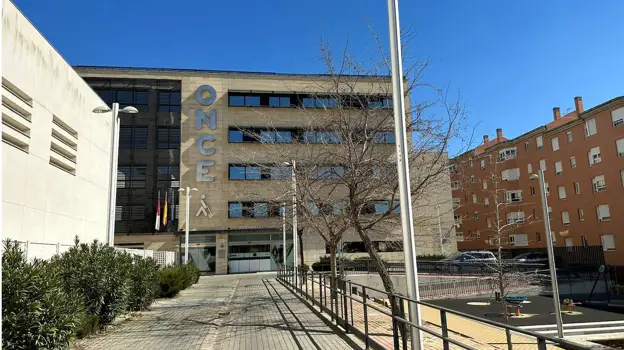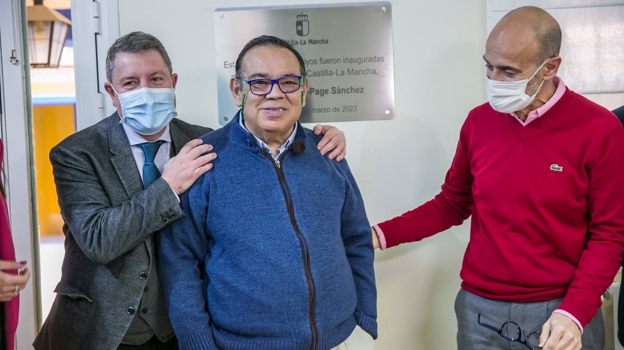When you walk through the streets of any city, you realize how difficult it is to navigate through many of them. Undercuts, defects and elements that protrude from some building facades can be an impediment and even a danger to any passerby. Can I imagine going through these same places as a person with a disability or an elderly person with physical and sensory limitations, who now not only come up against physical barriers, but also digital ones, in order to have access to some services in their day to day.
This problem is where the future Accessibility Law of Castilla-La Mancha intends to solve, which is in the making, but there is still a long way to go until this still pending assignment becomes a reality. The current regional regulations that regulate this matter are from 1994 and, after so long, it has become obsolete, since its content does not include the changes suffered in society for almost 30 years, after the introduction of new technologies in many of our uses. and costumes.
The legislative project is now in the public information period and until the next legislature, a priori, it will not be approved. Now there are numerous proposals that are coming from different entities and individuals so that the text that comes out is as complete as possible and all interests and needs are met, among which stand out, of course, that of the groups of People with disabilities.
To join forces, the president of the Territorial Council of ONCE (Spanish National Organization for the Blind) in Castilla-La Mancha, José Martínez, and the manager of the Spanish Committee of Representatives of People with Disabilities (CERMI) will meet recently with a representative of the Official College of Architects of Castilla-La Mancha (COACM), another of the actors that has a lot to say in this regard.
From that meeting came the intention to sign a collaboration agreement to develop joint actions and to transfer proposals to the regional government with a view to the new Accessibility Law that goes ahead. The objective of the three participants in the meeting was that the text that is approved must be conceived "in a universal and transversal way: a law with a 360º perspective", as they have called it. To do this, they also propose creating an economic fund for accessibility and ask that 1% of the resources obtained from building permits and other income be allocated to this issue.

The meeting was held at the Toledo regional headquarters of ONCE, the convening body whose president in Castilla-La Mancha, José Martínez, believes that "now it is time to bet on second-generation regulations that cover all needs." As he explained to ABC, "in the 90s, from when the current law dates, there was not an evolution as powerful as the one we have today, with the development of web pages and computer applications."
Access to the digital environment
"Currently, the digital environment is a key element and access to all these new technologies is not always easy for people with disabilities when it comes to interacting both with the administration and in their day-to-day activities, something that has been verified for the pandemic," said Martínez. All of this, in his opinion, is what the new law should contemplate, since "before, physical barriers were taken more into account, in what has been better, but there are elements linked to sensory disability or cognitive accessibility, which they are still pending implementation with information codes with pictograms”.
The objective, assures the manager of ONCE, is that "all citizens benefit and not only people with disabilities, since we have a population configuration where there are a large number of older people and we hear that accessibility is an element of model quality, of the environment in our cities and towns”.
On the other hand, the manager of CERMI Castilla-La Mancha, José Antonio Romero, understands that it is essential to create a cargo ship and a specific department on accessibility in the regional government, be it a general directorate, a commissioner or a vice-ministry , and at the same local level, with departments in municipalities with more than 20,000 inhabitants. "Accessibility must be something transversal, as in the case of depopulation or equality, and so that it reaches all the surroundings of the region, and not only the competence of Social Welfare," he points out.
For this, it considers it necessary to create accessible tools and resources in means of transport, electronic communication with the Administration, in access to health or in the relationship with financial institutions, such as ATMs. In this sense, Romero also recalls the need to apply infractions and sanctions for those who do not comply with accessibility because, according to him, "those who break the law are not punished as they should be."
During the interview, the representatives of the groups of people with disabilities can also transfer to the technicians of the College of Architects of Castilla-La Mancha (COACM) their experiences as users because, in their opinion, "real atrocities have been committed with the Law in the hand". For this reason, considering it essential that the solutions come from the professionals of architecture and construction.
In this sense, the dean of the COACM, Elena Guijarro, believes that "after a few years in which Spain and Castilla-La Mancha were the spearhead in terms of accessibility, we have fallen behind." «There is a lot to do and to improve, so our obligation as technicians is to put ourselves at the service of users, people with disabilities in this case, to know their needs, apply them in the spaces to live and work, and transfer , jointly, the fruit of all this work to the administration so that it can be converted into legislation and applied”, he emphasizes.
The joint objective, according to Guijarro, is that architecture and buildings are accessible to anyone with disabilities, be they physical, cognitive, auditory, visual or sensory. To this end, he informed, "work will be done to incorporate architectural projects for mechanisms such as magnetic induction loops that facilitate the accessibility of public buildings for people with hearing loss, or tactile signage, in this global concept of accessibility that must be extend to all levels and scope of the administration and society, and that we have to capture in architecture”.
Likewise, the representatives of the three entities have laid the foundations for the upcoming signing of an agreement with the ONCE Foundation, as well as a stable and coordinated work with the world of disability through CERMI, which will define a collaboration that they achieved, for For example, the training and permanent updating of COACM members in this field. "Together, we will seek consensus and participation at all possible levels," concludes Guijarro.

Page proposes a social tourism program for people with disabilities
Precisely, one of the proposals that the president of Castilla-La Mancha, Emiliano García-Page, has made this week has been to create a social tourism program for people with disabilities, a measure that has had "enormous success" among the elderly in the region and the possibility of traveling through Castilla-La Mancha.
It is a project that goes "like a motorcycle" despite the fact that in its day "some" "took it to hell", lamented the regional president during the inauguration of three houses for people with some type of disability in the complex 'Guadiana I' of Ciudad Real.
After recalling that there is a lot of employment linked to this sector and that therapeutically it is "very interesting", he admitted that extrapolating this program to the world of disability may be more complicated, but he believes that work must be done on it because people with disability so that they can travel 'so whenever it is reasonable, it is possible and the professionals say'.
"I know that when I have to ask the citizens of my land for money for these things, no one causes problems," said García-Page, who asked to plant this possibility seriously and well and "pull forward" with it.
That said, the Castilian-Manchego president assured that this program will also be a positive thing for the different professionals and will serve to "continue setting an example for Spain."
